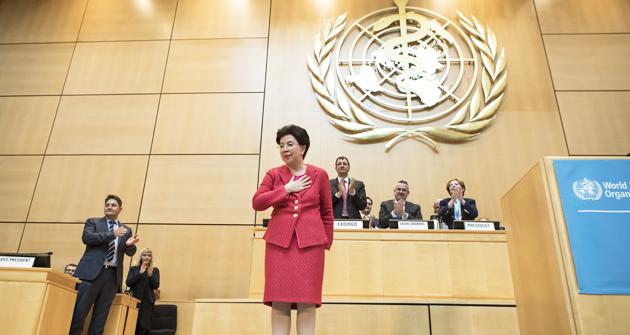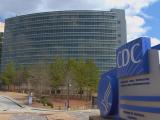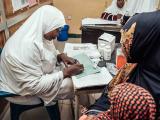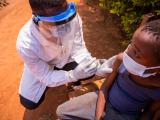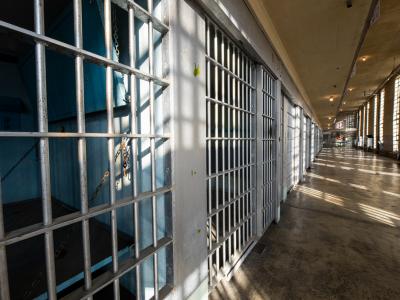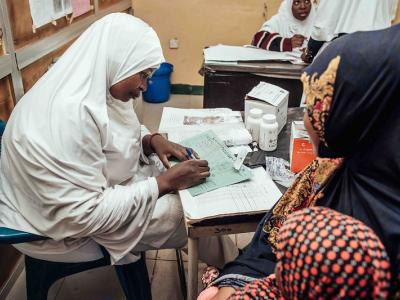The World Health Assembly (WHA) opened in Geneva today, highlighted by the last keynote address from departing Director-General Margaret Chan, MD, MPH, who recounted challenges and successes during her just over a decade at the World Health Organization (WHO) helm.
About 3,500 delegates from the WHO's 194 member states, many of them health ministers, are at the WHA, the decision-making body of the WHO. The meeting runs through May 31.
Topics will include the WHO's budget for 2018-19, emergency response programs and policies, the International Health Regulations, and pandemic influenza preparedness. Discussions will also cover polio, antimicrobial resistance, access to medicines and vaccines, and improving vector control.
Over the weekend, the opening of the meeting was clouded by a report of high WHO travel costs based on internal documents obtained by the Associated Press (AP). The report said the WHO routinely spends about $200 million on travel expenses, more than it spends on diseases such as AIDS, malaria, and tuberculosis. The report comes at a time when the WHO has pleaded with donor counties to help support emergency response operations and has struggled to control travel costs.
In a statement yesterday addressing the allegations, the WHO said travel is an essential part of its global health work and that from 2015 to 2016 it cut travel expenses by 14%, from $234 million to $200 million. It said more than half (60%) is for external experts and representatives of member states to travel to WHO technical meetings. It added that Chan recently strengthened travel policies by prohibiting first-class travel for all of WHO.
Chan recounts challenges, urges defense of science
In her final opening address to the WHA today, Chan reviewed the difficult political and economic conditions across the globe during her watch. She said the period saw erosion of health budgets, terrorism and violent extremism that have become commonplace, and alarming and frequent attacks on health facilities and workers.
Regarding infectious disease challenges, Chan said the world was fortunate that the 2009 H1N1 pandemic was so mild, and that so far other emerging viruses such as Middle East respiratory syndrome coronavirus (MERS-CoV) and H7N9 aren't spreading easily among people. "But they have the potential to do so and we dare not let down our guard," she added.
However, the world didn't fare as well with the Americas' Zika outbreak, and Chan said West Africa's Ebola outbreak took everyone, including the WHO, by surprise.
"WHO was too slow to recognize that the virus, during its first appearance in West Africa, would behave very differently than during past outbreaks in central Africa, where the virus was rare but familiar, and containment measures were well-rehearsed," she said.
In the Ebola outbreak's wake came reforms at WHO, a new emergency program, and game plans for more research and innovations, which Chan said should help preparedness, "but not nearly well enough."
In her concluding comments, she urged health leaders to push for fairness, accountability, scientific evidence, and innovation.
"Scientific evidence is the bedrock of policy," Chan said. "Protect it. No one knows whether evidence will retain its persuasive power in what many now describe as a post-truth world."
Chan has been with the WHO since 2003 and was elected to lead the agency in November 2006. She succeeded South Korea native Dr. Lee Jong-wook, who died unexpectedly following emergency brain surgery 3 years into his term. She is the first Chinese citizen to lead a major United Nations agency.
Three candidates for director-general
Tomorrow, delegates will hear from the three director-general nominees, who will give 15-minute addresses. Then the group will vote by secret ballot, with the total announced immediately following voting. The new director-general will be sworn in in a public ceremony, which will be webcast live.
The three nominees, all of whom have extensive global health background, are:
- Tedros Adhanom Ghebreyesus, PhD, from Ethiopia, who is currently the country's foreign affairs minister and its former health minister
- David Nabarro, MD, from the United Kingdom, who is currently a special adviser to the United Nations secretary-general and has led UN and WHO infectious disease and health emergency efforts
- Sania Nishtar, MD, from Pakistan, who is a former health minister and leads a nonprofit group aimed at improving health systems in Pakistan.
WHO director-generals serve a 5-year term and can be nominated by the executive board for a second 5-year term.
See also:
May 22 WHO press release
May 22 Margaret Chan speech
World Health Assembly Web page
May 21 AP story
May 21 WHO statement
